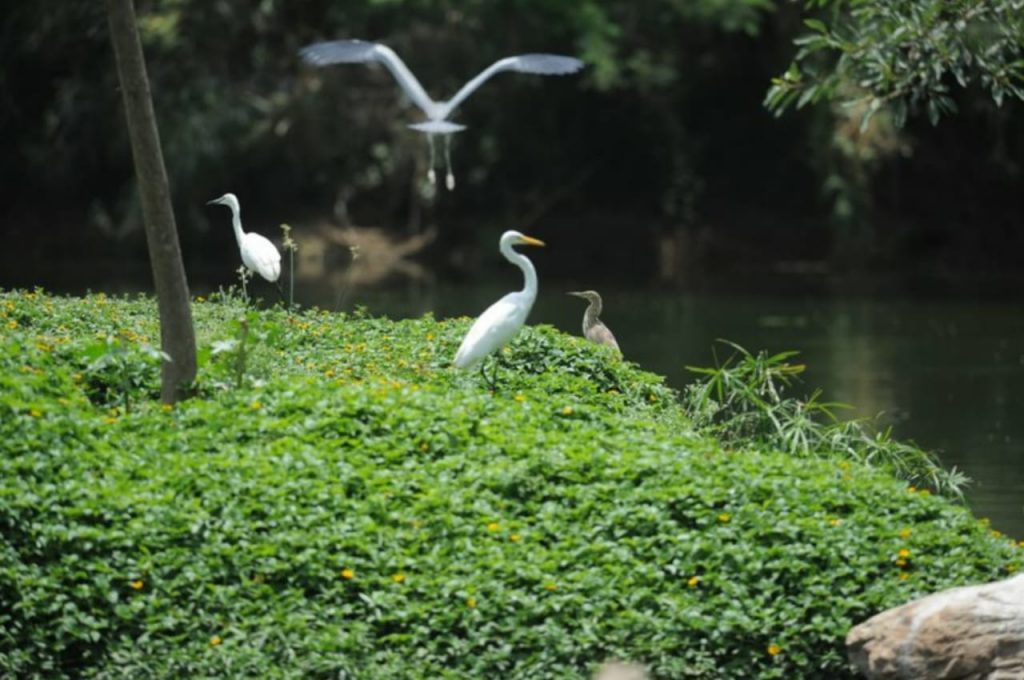TVS nurtures 40- acre forest around its Mysuru factory
2 min read

The concept was implemented in 1999 and today there are 158 species of plants and 290 species. Since its inception, the company has grown more than 45,000 plants in the wild and has planted more than 5,000 plants in the last two years
Mysuru: TVS Motor Company has created a sustainable co-existence of hundreds of variants at its Mysuru factory at Byathahalli near Kadakola.
For the past 20 years, the company has nurtured a 40-acre ‘sacred forest’ that has transformed wildlife habitat. The surrounding area of the factory has been developed into a rich flora and fauna habitat.

Under the guidance of TVS Motor Company Chairman Venu Srinivasan, the company has taken effective and proactive measures to conserve biodiversity and wildlife in the Mysore factory area. The concept was implemented in 1999 and today there are 158 species of plants and 290 species. Since its inception, the company has grown more than 45,000 plants in the wild and has planted more than 5,000 plants in the last two years.
TVS Motor’s Mysore factory has a bird sanctuary, an attractive butterfly garden, a botanical garden, an organic compost station and five lakes. The forest is home to hundreds of peacocks, owls, a variety of water birds, snakes, gazelles, squirrels and other animal birds.

The factory premises has become an attractive and recurring destination for employees, who enjoy dancing peacocks and lush greenery as employees enter the premises. It literally conveys the importance of melodic coexistence. It is also a breeding ground for fresh water turtle, cauldron, mongoose, moths and many other living things.
Dry shrub habitat has been developed within the premises which further enhances the habitat diversity. This is a testament to the rare environment within the manufacturing industry.
The company has taken steps to plant and grow indigenous trees, ensuring continuous water supply from ponds to enhance the existing habitat. New ponds have been developed to hold additional water. In addition, the ponds are regularly cleaned and the water de-oxygenation process is carried out to prevent ponding.
Continuous ventilation is also carried out to ensure a healthy level of oxygen thawing in long ponds. Hunting species such as fish and snails are also regularly left to ponds for the benefit of birds.
A full-time ecologist oversees the zoo and forest area and is consulting with experts to develop and manage this natural zone. As a safety measure, no waste in the forest area is allowed to be dumped or ignited. In addition, forest products are not allowed to be collected. Factory regulations do not allow for any air pollution and dirty water that can damage or degrade the natural floor.
– Team Mysoorunews







